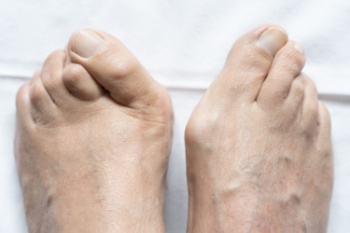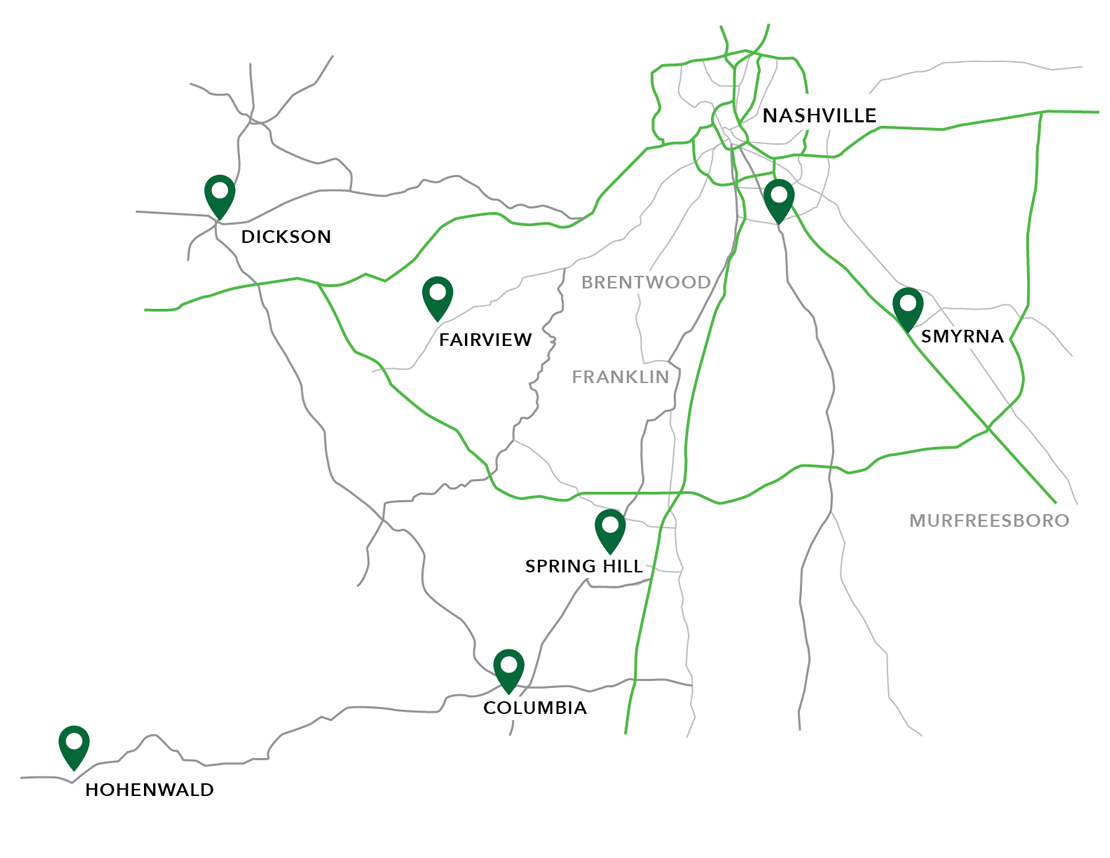
A bunion is a bony bump that forms at the base of the big toe, causing the joint to stick out and often push the toe inward. This condition develops slowly over time and may be caused by inherited foot structure, arthritis, or wearing tight, narrow shoes. Bunions can lead to pain, swelling, and difficulty finding comfortable footwear. The skin over the bunion may become red or irritated, especially after long periods of walking or standing. Wearing shoes with a wide toe box or using padding can help manage symptoms. In more advanced cases, custom orthotics or surgery may be recommended to correct the deformity. Early attention is key to preventing the bunion from worsening. If you have a painful bump on the side of your big toe or notice changes in the shape of your foot, it is suggested that you see a podiatrist for an evaluation and treatment options.
If you are suffering from bunions, contact one of our podiatrists of Advanced Foot & Ankle Care Centers. Our doctors can provide the care you need to keep you pain-free and on your feet.
What Is a Bunion?
A bunion is formed of swollen tissue or an enlargement of boney growth, usually located at the base joint of the toe that connects to the foot. The swelling occurs due to the bones in the big toe shifting inward, which impacts the other toes of the foot. This causes the area around the base of the big toe to become inflamed and painful.
Why Do Bunions Form?
Genetics – Susceptibility to bunions are often hereditary
Stress on the feet – Poorly fitted and uncomfortable footwear that places stress on feet, such as heels, can worsen existing bunions
How Are Bunions Diagnosed?
Doctors often perform two tests – blood tests and x-rays – when trying to diagnose bunions, especially in the early stages of development. Blood tests help determine if the foot pain is being caused by something else, such as arthritis, while x-rays provide a clear picture of your bone structure to your doctor.
How Are Bunions Treated?
- Refrain from wearing heels or similar shoes that cause discomfort
- Select wider shoes that can provide more comfort and reduce pain
- Anti-inflammatory and pain management drugs
- Orthotics or foot inserts
- Surgery
If you have any questions, please feel free to contact our offices located in Nashville, Smyrna, Spring Hill, Columbia, Dickson, Fairview, Hohenwald, TN and the Middle Tennessee community . We offer the newest diagnostic and treatment technologies for all your foot care needs.


